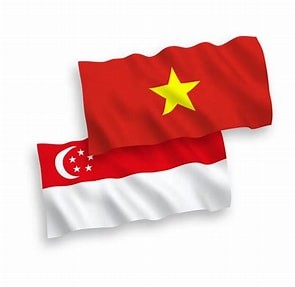
Throughout history, there have been claims and concerns that powerful elites use various means to control populations and maintain their dominance. These alleged manipulation tools often exacerbate societal divisions, influence natural systems, leverage advanced technologies, and undermine moral frameworks. Critics argue that elites frequently employ deceptive tactics, such as misinformation campaigns or staged events, to shape public perception and advance their agendas.
Political actors are often accused of using these strategies to sway public opinion and consolidate power. For example, disinformation campaigns during election cycles have been used to spread false narratives about opponents, manipulate voter perceptions, and amplify divisive issues. The Russia collusion hoax, which involved allegations of coordination between Donald Trump’s 2016 presidential campaign and Russian operatives, has been cited as a case where misinformation clouded political discourse. Investigations later revealed that the evidence supporting these claims was insufficient, raising questions about the motives behind the narrative. By controlling narratives through media, political speeches, or cultural influencers, elites can obscure their true intentions and maintain power while deflecting scrutiny.
Racial Division as a Strategy
One of the most pervasive strategies attributed to elite control is fostering racial division. By emphasizing differences and exploiting societal tensions, it’s argued that elites can distract populations from larger systemic issues. This fragmentation prevents unified opposition to policies or practices that may disproportionately benefit the powerful. Historical examples highlight how racial tensions have been used to justify wars, suppress movements, or shift public focus away from socioeconomic disparities.
In modern contexts, initiatives like Diversity, Equity, and Inclusion (DEI) programs are often framed as efforts to address systemic inequalities. While these programs aim to promote fairness, critics argue that they can sometimes deepen divisions by emphasizing identity over shared goals. For example, DEI initiatives may inadvertently create resentment among groups who feel excluded or unfairly targeted, leading to further polarization.
Similarly, discussions around LGBTQ+ rights and white privilege have sparked debates about whether these conversations promote understanding or inadvertently create new fault lines in society. LGBTQ+ advocacy has made significant strides in securing rights and recognition, but opponents claim that the focus on these issues can overshadow broader societal challenges. The concept of white privilege, which highlights systemic advantages afforded to white individuals, has also been criticized for oversimplifying complex social dynamics and alienating certain groups. Some suggest that these topics are amplified to polarize communities, making it easier for elites to maintain control by keeping people focused on cultural conflicts rather than economic or political power structures.
Geo-Engineering and Weather Control
Geo-engineering, which refers to large-scale interventions in Earth’s climate systems, is another controversial topic. Technologies like cloud seeding to induce rainfall or solar radiation management to reduce global temperatures are often discussed as solutions to climate change. However, some worry that these techniques could be misused, leading to unintended ecological consequences or the manipulation of weather patterns for political or economic gain. For instance, controlling precipitation in agricultural regions could disrupt global food supplies, creating opportunities for exploitation by those in power.
Adding to these concerns, a report from the U.S. Air Force (USAF) has outlined the potential for weather control as a strategic tool by 2030. The document explores how advances in technology could allow for localized atmospheric modifications, such as creating fog or cloud cover, to shield assets or disrupt adversaries. While these ideas remain speculative, they raise ethical and geopolitical questions about the militarization of natural systems. Furthermore, there is speculation that weather experiments may already be underway in the United States as part of efforts to achieve these ambitious goals. These experiments could involve testing technologies for fog manipulation, precipitation control, or other atmospheric interventions, potentially setting a precedent for future applications.
Radio Frequencies and Cognitive Manipulation
The rapid expansion of 5G networks has sparked concerns about the potential for radio frequencies to influence human health or behavior. While the primary purpose of 5G is to enhance communication and connectivity, some theories suggest that prolonged exposure to radiofrequency (RF) radiation might subtly impact brain function. Although most scientific studies haven’t found conclusive evidence supporting these claims, critics argue that more transparent research is needed.
The concept of cognitive manipulation through RF technologies taps into fears of surveillance and loss of autonomy. For example, some speculate that RF fields could be used to influence neural activity or cognitive processes, although these claims remain largely unsubstantiated. The broader concern is that advanced technologies like 5G could be weaponized or exploited for purposes beyond their intended use, raising ethical questions about their deployment and regulation.
Attack on Religion and the Disregard for Human Life
Another area of concern is the perceived attack on religion and the increasing disregard for human life. Critics argue that religious institutions and beliefs are under siege, with growing hostility toward faith-based practices and symbols. Instances of vandalism, restrictions on religious gatherings, and public desecration of sacred texts have been cited as evidence of this trend. Some suggest that these actions are part of a broader effort to undermine moral frameworks that challenge elite agendas.
Simultaneously, the disregard for human life is often highlighted in discussions about societal violence, dehumanizing rhetoric, and policies that prioritize profit over well-being. From debates about bioethics to the treatment of marginalized communities, these issues raise questions about the erosion of values that uphold human dignity. Critics argue that this shift serves to desensitize populations, making it easier to implement controversial policies or technologies without significant resistance.
Whether these elements are part of a deliberate scheme or simply reflect advancements and societal challenges is a matter of debate. However, the common thread is the demand for transparency, accountability, and public engagement in decisions that could profoundly impact humanity.




